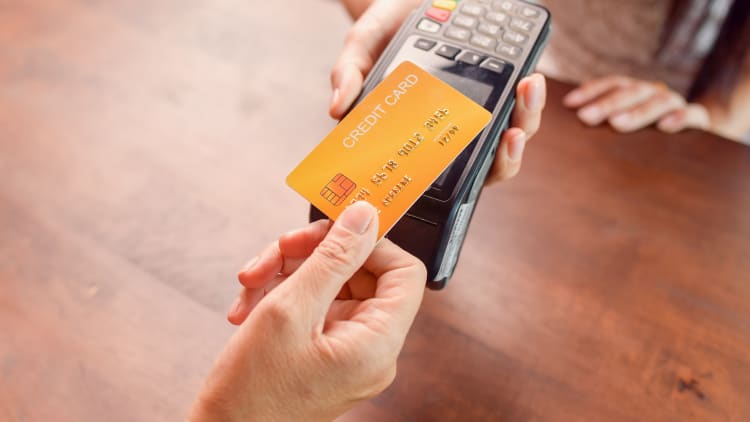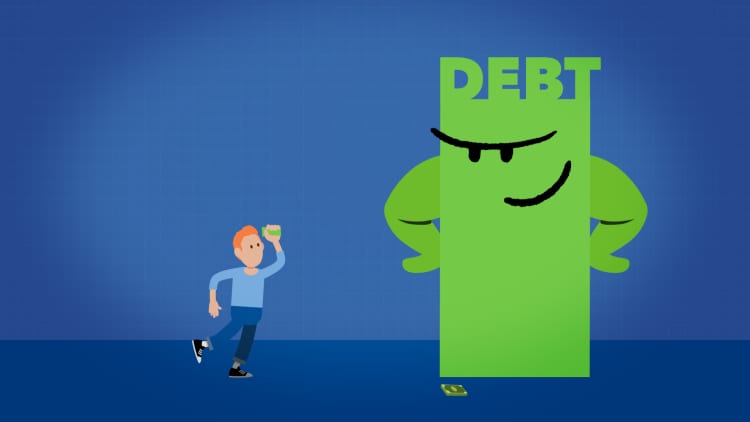With day-to-day expenses staying high due to inflation, more Americans are relying on credit cards to make ends meet.
As the personal savings rate sank near an all-time low, credit card balances jumped 15% year over year, according to the latest quarterly report from the Federal Reserve Bank of New York, notching the largest increase in more than 20 years.
"With prices more than 8% higher than they were a year ago, it is perhaps unsurprising that balances are increasing," the Fed researchers wrote in a blog post.
"The real test, of course, will be to follow whether these borrowers will be able to continue to make the payments on their credit cards."
Now studies show fewer Americans are paying off their credit cards off in full.
More from Personal Finance:
Here's the best way to pay down high-interest debt
63% of Americans are living paycheck to paycheck
'Risky behaviors' are causing credit scores to level off
Nearly half, or 46%, of credit cardholders carry debt from month to month on at least one card, up from 39% last year, according to a new report by Bankrate.com.
"People are hanging in there for now, but some of the cracks are starting to show," said Ted Rossman, senior industry analyst at Bankrate.
Not only can carrying a balance lower your credit score, but sky-high annual percentage rates also make credit cards one of the most expensive ways to borrow money.
The average credit card rate is now 19.6%, on average — at an all-time high — after rising at the steepest annual pace ever, in step with the Federal Reserve's interest rate hikes to combat inflation.

Along with the Fed's commitment to keep raising its benchmark until more progress is made, credit card rates will be over 20% by the end of the year, Rossman predicts.
Those with revolving debt tend to have even higher rates, he said. However, of those who carry a balance, 43% don't even know the interest rate they're being charged, Bankrate also found.
The math is 'staggering'
At 19.6%, if you made minimum payments toward the average credit card balance — which is $5,474, according to Transunion — it would take you almost 17 years to pay off the debt and cost you more than $7,528 in interest, Bankrate calculated.
"The math is pretty staggering," Rossman said.
The first thing you should do is acknowledge what you owe and the interest rate, he advised. Then, start to pay down the debt with a 0% balance transfer card.
A 0% balance transfer card is "the best weapon that you can have in your arsenal against credit card debt," said Matt Schulz, LendingTree's chief credit analyst.

"If you don't take steps to knock that debt down, it will only get more expensive," Schulz said.
Cards offering up to 21 months with no interest on transferred balances "are still widely available," he added.
Making the best use of a balance transfer boils down to making those payments on time and aggressively paying down the balance during the introductory period, according to Schulz.
If you don't pay the balance off, the remaining balance will have a higher APR applied to it, which is generally about 23%, on average, in line with the rates for new credit.


